Nursing Coronavirus resources is a list of organizations with the most up-to-date- information on the Coronavirus and the COVID-19 Pandemic. Nurses and healthcare workers that are on the front lines of fighting coronavirus are contributing to their state’s coronavirus data tracker every time they record observations and interventions. The information generated by patients is sent to the relevant departments of health for the state and entered into that state’s coronavirus data tracker. In turn, the information becomes part of the COVID-19 data by state and is submitted to the overall aggregate number of infected patients. They are essential to pandemic modeling and data.
Healthcare science is learning more about the virus on a daily basis, but the amount of COVID-19 data USA isn’t as complete as the experts would like. Research into the virus has only just begun and it’s unknown how long it will take to create a full profile of the virus and how to control the damage it does to the human body. What is known is that the infection patterns are highly localized and unpredictable which puts the burden on healthcare organizations to stay up-to-date and provide COVID-19 resources to healthcare workers as frequently as possible.
Featured Programs
Nursing School Hub is dedicated to providing information to nurses, nursing students, and other healthcare professionals. To help, NSH editors have researched the most reliable, non-partisan, and up-to-date sources of information critical to the safety and service of healthcare workers. Resources are presented in alphabetical order.
1. The American Association of Critical-Care Nurses (AACN)
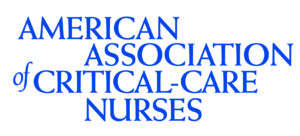
The American Association of Critical-Care Nurses provides valuable coronavirus resources for nurses on the frontline during the COVID-19 pandemic. Among the coronavirus resources for healthcare professionals from AACN include free coursework, pocket cards, insight from experienced frontline managers, books, practice tools, topical blog topics, and procedure manuals, among other resources. Free coursework includes the Role of the Critical Care Nurse at the Bedside, Pediatric Mechanical Ventilation, Right Ventricular Failure, Non-Invasive Ventilation, and ARDS & Ventilator Resources.
The AACN – the American Association of Critical-Care Nurses is a professional nonprofit 501(c)(3) organization founded in 1969. AACN is on a mission to help create a healthcare system that meets the needs of the patients, and critical care nursing professionals contribute maximally. At present, the American Association of Critical-Care Nurses has a member enrollment that exceeds 100,000 nursing professionals.
2. The AACN – the American Association of Colleges of Nursing
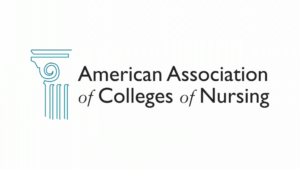
The AACN – the American Association of Colleges of Nursing (AACN) offers valuable coronavirus resources for nurses and nurse educators through the many blogs, webinars, and current updates from the Center for Disease Control (CDC). Nursing students have access to AACN’s on-demand webinars, virtual case study library – including coronavirus cases. Practicing nurses will find coronavirus resources for healthcare professionals that include COVID-19 glossaries in 12 languages, COVID-19 job boards, COVID-10 Contact Tracer coursework, and end of life care resources.
The AACN – the American Association of Colleges of Nursing was established in 1969 to represent academic nursing. What began as a 100+ institution of higher education membership is currently a membership that nears 850 nursing schools, 500,000+ students, and more than 44,000 academic faculty members. The AACN has developed through a national consensus, competency expectations for nursing school graduates at the bachelor’s, masters, and doctoral levels.
3. The American Association of Nurse Anesthetists (AANA)

The AANA – the American Association of Nurse Anesthetists provides a wealth of information and coronavirus resources for healthcare professionals. The AANA provides coronavirus resources for nurses to help nurse anesthetists manage their mental and emotional well-being during the COVID-19 crisis. The American Association of Nurse Anesthetists offers guidance regarding when the right time is to resume elective surgeries and free coursework in topical COVID-19 critical care subjects. The AANA provides information for the many freebies offered by companies as a way to honor first-line COVID-19 responders, like Hilton and American Express.
The American Association of Nurse Anesthetists is a professional organization that represents nearly 55,000 CRNA’s – Certified Registered Nurse Anesthetists and students studying to become CRNA, which was established in 1931. The CRNA’s represented by AANA administer anesthesia to nearly 50 million patients annually working with doctors, dentists, surgeons, among others.
4. The American Health Care Association (AHCA)
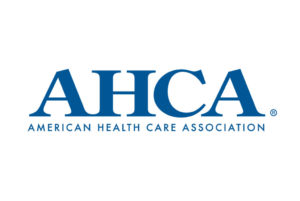
The American Health Care Association (AHCA) offers various coronavirus resources for healthcare professionals working the frontlines in long-term care facilities across the country. The AHCA offers free coursework for temporary nurse aide providers and facilitates a national request to share support messages to the many residents enduring the COVID-19 pandemic in a long-term care facility. The American Health Care Association also provides coronavirus resources for nurses, doctors, aides, and administrators in the nation’s long-term care facilities with regard to the facility’s operations, residents, and the friends/family members of residents.
The American Health Care Association (AHCA) is recognized among the most extensive professional organizations for post-acute/long-term care providers with a member facility roster that exceeds 14,000. The AHCA is a national voice for the million residents cared for by AHCA member facilities. The American Health Care Association acts as a liaison among the business community, the public, the government, and the healthcare community.
5. The American Hospital Association (AHA) – Protecting Healthcare Workers
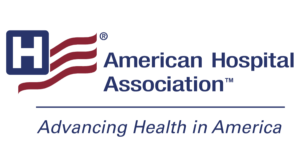
The American Hospital Association (AHA) offers a variety of coronavirus resources for healthcare professionals working in hospitals during the COVID-19 crisis entitled Protecting Healthcare Workers. These coronavirus resources for nurses and other healthcare professionals includes tools to ensure hospital staff remains protected during the pandemic, plus work staff educational programs related explicitly to COVID-19. The AHA also provides legislative updates, information on cybersecurity, and in-depth resources to care for frontline heroes.
The American Hospital Association’s Protecting Healthcare Workers initiative is only one of the many remarkable offerings of the AHA. Founded nearly 125 years ago, AHA’s membership now includes more than 40,000 individuals plus another 5,000+ healthcare networks and hospitals. The American Hospital Association began as a private organization in Cleveland but is now the national voice for health care leaders in regulatory and judicial matters relevant to the hospital administration profession.
6. The American Medical Association (AMA) – The Coronavirus Resource Center
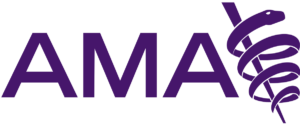
The American Medical Association’s (AMA) offers coronavirus resources for healthcare workers through its online Coronavirus Resource Center. AMA’s coronavirus resources for nurses and physicians include webinars regarding the preparation of the next generation of medical residents, a women’s resource guide for COVID-19, and current guidance on antibody serological testing. Additional resources for COVID-19 include a national town hall for physicians regarding the coronavirus pandemics and guidance for private medical practices struggling financially during the pandemic.
The American Medical Association was established in 1847 with a mission to create healthier lives and futures for all patients by New York physician Dr. Nathan David. In its 175+ year history, the AMA has single-handedly been responsible for the creation of medical education standards, significant scientific advancement, public health improvement, and the development of national medical ethics. The AMA has been publishing the renowned medical journal – the Journal of the American Medical Association since the mid-1870s.
7. The Center for Disease Control (CDC) – Coronavirus Data Center
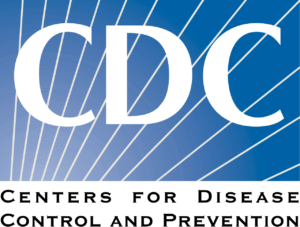
The Center for Disease Control (CDC) offers coronavirus resources for health care professionals within its Coronavirus Data Center. The CDC’s coronavirus resources for nurses and healthcare professionals include a 24-hour hotline staffed with CDC clinicians – available to cover topics like clinical management, infection control, or diagnostic challenges, to name a few. The CDC provides clinical tools to help better manage surges in demand for hospital services. Additional resources include burn rate calculators to optimize the use of personal protective gear.
The Center for Disease Control (CDC) was established in the mid-1940s in Atlanta, GA, with an initial objective – to prevent the spread of malaria across North America. The CDC has a remarkable and successful history of contributions to the medical community and public health. By 1948, the United States was Malaria free thanks to tremendous efforts for the experts at the CDC. Additional contributions include standardized cholesterol testing, anthrax testing, and polio control.
8. The Duke University Press – Navigating the Threat of Pandemic
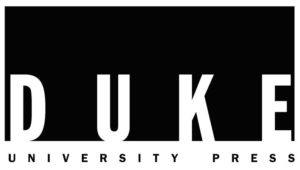
The Duke University Press offers free access to coronavirus resources for healthcare professionals who are currently Navigating the Threat of COVID-19 online that includes books and journal articles related to the coronavirus pandemic. Coronavirus resources for nurses, doctors, and other medical professionals include topics Racial Justice, Environmentalism, Global Immigration, Care in uncertain Times, and The Aftermath of Catastrophe, among others. Coronavirus resources from the Duke University Press are available through 6/30/2020.
The Duke University Press (DUP) was established in 1921 as the Trinity College Press. The Duke University Press is a recognized non-profit publishing company in North Carolina tasked with the mission to support the academic community in its teaching pursuits to bring about positive change to the world population. DUP is world-renowned for its publications in math, humanities, and the social sciences. DUP publishes about 170 books and journals each year.
9. The Emergency Nurses Association (ENA) – COVID-19 Information
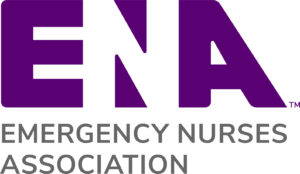
The Emergency Nurses Association (ENA) offers a dedicated page of COVID-19 – coronavirus resources for nurses and other nursing professionals. The coronavirus resources for healthcare professionals include discounts being offered to frontline medical providers, discussion boards regarding COVID-19, national guidelines, and guidance regarding resuscitation management. The ENA also offers resources for patients, community members, volunteers for emergency response, leadership, and international resources. Check out the ENA’s COVID-19 infographics micro-learning clips, podcasts, and virtual town meetings.
The Emergency Nurses Association was established with a straightforward mission to advance the excellence of care provided by emergency nursing professionals. THE ENA administers the Academy of Emergency Nursing, the ENA’s initiative, to honor meaningful contributions to the field of emergency nursing. The Emergency Nurses Association publishes the Journal of Emergency Nursing, which also bestows honors each year to outstanding emergency nursing professionals.
10. FLARE – The Fast Literature Assessment and Review
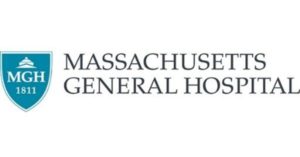
FLARE – The Fast Literature Assessment and Review offers coronavirus resources for healthcare professionals by simply adding your name to the mailing list. Fast Literature Assessment and Review emails COVID-19 informational updates as needed, but about once a day. Recent newsletters that offer coronavirus resources for nurses and other healthcare professionals include the origin of SARA-CoV-2, helmet ventilation, sedation in COVID-19, lung pathology in COVID-19, and the interplay of COVID-19 and diabetes, as well as obesity, among others.
FLARE – Fast Literature Assessment and Review is a collaborative initiative of Massachusetts General Hospital’s Department of Medicine and the hospital’s critical care division. Massachusetts General Hospital is a premier medical facility in downtown Boston providing virtual information regarding the latest medical trials, patient education, and a number of other community resources.
11. Harvard Health Publishing/Harvard Medical School – Coronavirus Resource Center

Harvard Health Publishing manages the Coronavirus Resource Center, which offers current information and coronavirus resources for healthcare professionals regarding the symptoms and spread of COVID-19 and guidance for those who care for or are a part of the high-risk community. Harvard’s coronavirus resources for nurse and other medical professionals also includes information regarding COVID-19 treatments and ways to manage care for a child who has COVID-19. Harvard University’s Coronavirus Resource Center provides valuable guidance and answers to some of the most pressing COVID-19 questions.
Harvard Health Publishing is the media division within Harvard University’s Medical School. The primary mission of the Harvard health Publishing division is to ensure the most topical health information is available across the globe. Harvard Health Publishing manages the publication of several health reports regarding women’s health, men’s health, heart health, and overall health.
12. HERO – Healthcare Worker Exposure Response & Outcomes
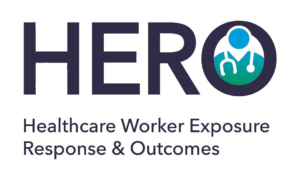
HERO – Healthcare Worker Exposure Response & Outcomes network is a national community of clinical researchers who join together fighting COVID-19 on the frontline. The only eligibility requirements to receive HERO’s coronavirus resources for healthcare workers is that the participant must be of legal age – 18 years old, and a healthcare worker in the U.S. in any capacity. Registry participants of the coronavirus resources for nurses and all employees of healthcare facilities are invited to join a 15,000-member survey regarding the efficacy of hydroxychloroquine in treating COVID-19.
HERO – Healthcare Worker Exposure Response & Outcomes is an open virtual community of healthcare works who wish to participate in rapid-cycle research. Membership for HERO is free and requires only a few minutes to register. The Healthcare Worker Exposure Response & Outcomes network is funded by several donors like Duke Clinical Research, patient Centered Outcomes Research Institute, and PCORnet.
13. The Institute for Health Metrics & Evaluation – University of Washington Medicine
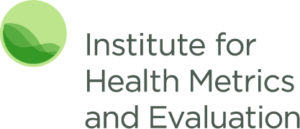
The Institute for Health Metrics & Evaluation within the University of Washington Medicine offers up-to-date modeling regarding various metrics of COVID-19. These models are valuable coronavirus resources for healthcare professionals on the front line of the COVID-19 pandemic. In addition to the modeling tables, the IHME provides current commentary on infections, testing, deaths, social distancing, and hospital capacities. Technical forecasts are included in the coronavirus resources for nurses and other medical professionals. They offer insights into the economic and social impact of COVID-19 for Europe and the United States.
The Institute for Health Metrics & Evaluation within the University of Washington Medicine is an independently operated research facility with a primary objective to maintain strict measurement standards regarding the globe’s significant health issues. The IHME seeks to answer how to optimize health using the dedicated available resources provided through private and government initiatives.
14. The Institute for Healthcare Improvement (IHI)
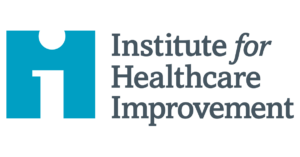
The IHI – the Institute for Healthcare Improvement provides a wide variety of coronavirus resources for healthcare professionals in support of health system leaders, healthcare providers, and hospitals manning the front line of the COVID-19 crisis. Frontline medical providers are encouraged to share their stories as well as any proprietary coronavirus resources for nurses and health care professionals. Each Friday morning, the IHI offers a virtual learning series at no cost. Free webinars are available on Tuesday afternoons. The IHI also provides easy access links to many crucial external coronavirus resources.
The Institute for Healthcare Improvement was established in 1991 by a group of visionary doctors and medical professionals with a desire to set forth standards for best practices, partake in innovative research and development. The Institute for Healthcare Improvement has a strong foothold in the United States with a growing presence internationally in New Zealand, Latin America, Singapore, England, Scotland, South Africa, Denmark, and Sweden, among other places.
15. The Johns Hopkins University (JHU) School of Medicine – Coronavirus Research Center
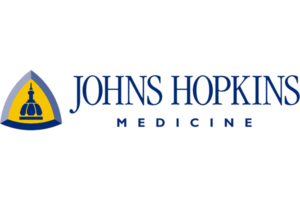
The Johns Hopkins University (JHU) School of Medicine provides a variety of valuable coronavirus resources of healthcare and medical professionals. JHU’s Coronavirus Research Center includes sophisticated statistics regarding the spread of COVID-19. These coronavirus resources for nurses also include guidance regarding the reopening of schools and the country as a whole. Experts from JHU are available to help protect the health of everyone by posting daily updates from their webinar Public Health on Call and the mapping of the test results, global deaths, and confirmed global cases.
The Johns Hopkins University (JHU) School of Medicine was established in 1893 and has been consistently recognized among the best schools of medicine in the nation. JHU receives some of the most competitive NIH grants and funding of all medical schools in the country. JHU is considered when the country’s premier teaching hospitals
16. Mapping Mobility Changes in Response to COVID-19 – U.W. at Madison
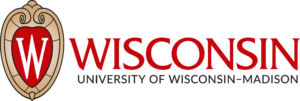
Mapping Mobility Changes in Response to COVID-19 by GeoDC from the University of Wisconsin at Madison offers detailed maps regarding a number of critical COVID-19 data. UW Madison’s electronic mapping data is available in each county in each state in the nation. The coronavirus resources for nurses and medical professional is seeking to investigate the gap that exists between the information received by the public and the cutting-edge scientific data and modeling. Ultimately, this data can be used to determine the efficacy of social distancing mandates.
Mapping Mobility Changes in Response to COVID-19 from the University of Wisconsin at Madison has recently placed first at the American Association of Geographers yearly conference that was held virtually. This mobility mapping to provide coronavirus resources for healthcare teams and professionals includes several other partners – the Wisconsin State Cartographer’s Office, American Family insurance Data Science Institute, and the Global Health Institute.
17. The NAHC – the National Association for Home Care & Hospice (NAHCH)
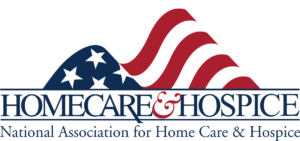
The NAHCH – the National Association for Home Care & Hospice offers tremendous coronavirus resources for healthcare and medical professionals that include toolkits, planning tools, and cost tracking spreadsheets, to name a few. These coronavirus resources for nurses and hospice/home care workers includes links to AARP guidance for seniors, advocacy initiatives, and the answers to questions regarding COVID-19. The NAHHC has also put together comprehensive guides for patients and caregivers in the fight of the COVID-19 coronavirus crisis.
The National Association for Homecare & Hospice is a nonprofit professional organization representing more than 31,000 hospice/home care agencies in the United States. NAHCH is the national voice for more than 2,000,000 medical professionals and caregivers employed by the hospice and home care industries. In addition, the NAHCH manages the Center for Health Care Law, an advocacy legal effort to protect the disabled, chronically ill, and elderly population’s rights.
18. The National Association of School Nurses (NASN)
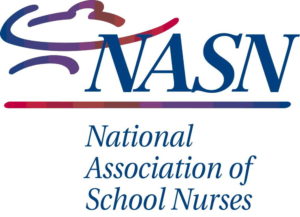
The NASN – the National Association of School Nurses, in combination with the CDC – Center for Disease Control & the World Health Organization (WHO), offer coronavirus resources for nurses working in schools and other academic institutions. Several coronavirus resources for healthcare professionals are available in Korean, Chinese, Spanish, and Amharic. The NASN’s COVID-19 resource page includes links to the U.S. Department of Education, WHO, The Network of Public Health Law, Johns Hopkins University, the CDC, and EMT Associates, Inc. Much of the guidance is specifically directed towards nursing professionals employed by schools.
The National Association of School Nurses is a professional organization with one objective to ensure each and every student is safe and healthy – in a position to learn by advancing the school nursing practices. NASN’s core values include integrity, leadership, scholarship, innovation, ethics, excellence, child well-being, and Diversity & Inclusion.
19. The National Institutes of Health (NIH) – Coronavirus Resources
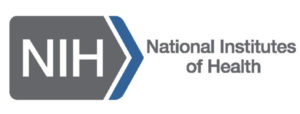
The National Institutes of Health (NIH) offers up-to-date coronavirus resources for healthcare and medical professionals as the COVID-19 crisis continues to unfold rapidly. The National Institutes of Health coronavirus resources for nurses offer access to clinical trials related to COVID-19 or an option to receive automatic updates directly from the NIH to your inbox. Check out the available grants and funding section, recent news releases, blog posts, and NIH’s efforts to accelerate the availability of testing throughout the country.
The National Institutes of Health is a division within the federal government’s Department of Health and Human Services. The NIH was established in 1887 in one room in a Marine Hospital Service, originally used to examine passengers entering the United States for infectious diseases like yellow fever, etc. Ultimately, NIH’s discoveries have led to the creation of MRI technology.
20. The National League for Nursing (NLN)
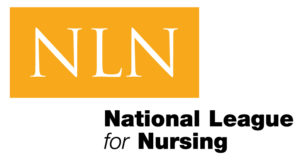
The National League for Nursing provides a comprehensive set of coronavirus resources for nurses that includes information on advocacy action, virtual resources, tips, advice, and webinar series dedicated to supporting the frontline healthcare professionals fighting COVID-19. Virtual simulation coronavirus resources for healthcare professionals are available for nurse practitioners and undergraduate students. Downloadable information and material are available regarding tips to protect oneself, nursing education protocols, and cautions for the use of homemade masks with regard to COVID-19.
The National League for Nursing, headquartered in the nation’s capital, is the premier professional organization and national voice for nursing excellence for leaders and faculty members of nursing education schools. The National League for Nursing was founded at the end of the 19th century as the ASSTSN – the American Society of Superintendents of Training Schools for Nurses. The NLN represents academic nursing programs offered by institutions of higher education, healthcare organizations, and agencies.
21. The Nurse.Org Ultimate Resource List

The Ultimate Coronavirus Resources for Nurses list is offered by the nursing specialists and experts at nurse.org. Nurse.org’s coronavirus resources for healthcare and nurse-related professionals include valuable information for nurses, nursing students, and volunteers looking to help in one of the greatest health care crises of recent history. In addition, nurse.org’s resource page for COVID-19 includes discounts available to firsts responders offering lodging (American Hotel & Lodging Association), Choice Hotels, RVShare, and transportation discounts from Citibike (NYC), Hertz and Delta Airlines.
The Nurse.Org is an online community of dedicated nursing experts in the fields of education content for nurses from many different nursing professionals covering many nursing perspectives. Nurse.org seeks to publish thought-provoking nursing-related material by industry thought leaders. In addition, nurse.org is responsible for the launch of many culture-changing efforts and initiatives.
22. The Rural Health Information Hub (RHI Hub) – The Federal Office of Rural Health Policy
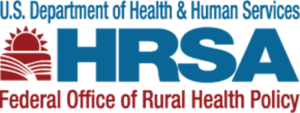
The Rural Health Information Hub (RHI Hub) from the Federal Office of Rural Health Policy offers valuable coronavirus resources for nurses and other medical professionals working on the COVID-19 frontlines in rural America. In addition to key links to federal government websites, the Rural Health Information Hub has prepared coronavirus resources for healthcare and medical personnel regarding communication techniques for reaching residents in rural communities across the country. Check out the RHI Hub’s state and national initiative links to other related organizations like the American Dental Association, the American Hospital Association, the Kaiser Family Foundation, and the Extension Disaster Education Network, among many others.
The Rural Health Information Hub is a government agency tasked with the mission to enhance the health of the Americans who live in rural communities. Their resources include an online library for individual states, data visualizations, case studies, chat forums, and a multitude of tools dedicated to helping rural Americans.
23. The Schwartz Center for Compassionate Healthcare
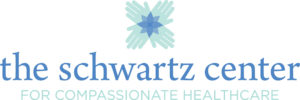
The Schwartz Center for Compassionate Healthcare (SCCH) offers professional coronavirus resources for healthcare and medical personnel managing the COVID-19 pandemic. The Schwartz Center for Compassionate Healthcare is now providing a special series of webinars dedicated to coronavirus resources for nurses who need help managing the anxiety and stress from the frontline COVID-19 environments. SCCH offers advice for supporting those struggling with isolation and loneliness as the quarantine orders remain in place. The Schwartz Center for Compassionate Healthcare and Harvard’s School of Public Health partnered to offer a program dedicated to health for all.
The Schwartz Center for Compassionate Healthcare began in 1994 with one individual who was diagnosed with lung cancer. The Schwartz Center for Compassionate Healthcare is now a premier provider of training and education support programs for professionals in the United States, and internationally in New Zealand, Australia, and Canada.
24. The John A. Hartford Foundation (JHF)

The John A. Hartford Foundation (JHF) offers a comprehensive amount of coronavirus resources for healthcare and medical professionals working in the country’s long-term care facilities and nursing homes. JHF’s to coronavirus resources for nurses and nursing home care providers includes access to federal guidance from the CMS, the CDC, and other national long-term care professional organizations. Additionally, the John A. Hartford Foundation offers daily webinars and recordings of previous webinars dedicated to keeping nursing home professionals current with COVID-19 information.
The John A. Hartford Foundation is a professional organization with a mission to improve the care received by all older adults. JHF was founded in 1982 and has since received more than ½ billion dollars in grant funds since its inception. The John A. Hartford Foundation serves more than 10,000 individuals who reach the age of 65 on a daily basis.
25. The World Health Organization (WHO)

The World Health Organization (WHO) offers tremendous and valuable coronavirus resources for healthcare and medical professionals throughout the globe. The World Health Organization’s global resources include advice for the public and more detailed guidance regarding travel and situations. The coronavirus resources for nurses and medical providers include up-to-the-minute statistics regarding COVID-19 across the world and each country. The World Health Organization has created a free app to help support nurses, doctors, and healthcare workers on the frontline combatting the spread of COVID-19.
The World Health Organization was established by several United Nations diplomats in the late 1940s, on April 7th, which is now celebrated as World Health Day. At present, the World Health organization is headquartered in Geneva, Switzerland, and has more than 7,000 employees working in more than 140 countries across the globe.
How are Healthcare Organizations Helping Nurses and Other Professionals with COVID-19 Information?
Healthcare organizations are supporting their nurses and healthcare professionals with COVID-19 information through a variety of sources. The sources include information from the World Health Organization (WHO), federal and state health department resources, and local health department information. The coronavirus data by the state is highly dependent on local conditions while the general coronavirus data USA provides an overall view of the total numbers.
Hospitals and other healthcare facilities are keeping employees informed of any changes to the handling of patients and requiring the use of multiple layers of PPE in all areas of the hospital. They also have internal COVID-19 resources for staff to consult and stay updated on a regular basis. It is generally acknowledged in the healthcare field that the more informed the workers are, the better they can handle the spread of the virus and care for the infected patients.
How Do Nurses and Healthcare Workers Contribute to Data?
The COVID-19 information center that each state puts out is more than the rates of infection, deaths, and recoveries. The information supplied for COVID-19 resources includes the number of hospital beds occupied, how many ventilators are in use, the populations that are infected, and the hotspots where infection rates are increasing. Coronavirus data by the state also shows how ready a state is to move into its next phase for reopening. All of the data that’s presented in each state’s COVID-19 information center shows the data that’s relevant for each state. Some states have reopened entirely or in part, but the coronavirus data tracker used in every state is still relevant.
States are reopening based on the data provided by the healthcare industry and departments of public health. The metrics used in reopening play a large role in many states’ decisions to allow the business to resume as normal or on a limited basis. It’s acknowledged that the coronavirus has not disappeared, but when the statistical information provided by the healthcare industry is showing a decline in admissions and positive tests, it shows that it’s safer to go back to business as usual. In the event the rates of infections and hospitalizations increase, the states will use the data to modify the behavior of the public at large once again.
Where Have Hospitals Experienced the Worst Surges?
When looking at coronavirus data by state, it quickly becomes apparent that there are certain states that have been hit the hardest. They include:
- New York
- New Jersey
- Rhode Island
- Massachusetts
- Pennsylvania
- Illinois
- Michigan
- California
It’s important to take a close look at the coronavirus data by state to determine what’s going on in a given area. For example: taking a look at the COVID-19 information center for New York state, it quickly becomes apparent that the majority of infections in the state are located in the most densely populated area the state. Manhattan, Bronx, and Kings counties hold the highest amount of infections in the entire state. Most residents in these areas live in close proximity to one another which facilitates easy transmission of the virus. In contrast, other areas of the state have lower rates of infection due to lower populations and low-density styles of living.
Healthcare facilities in densely populated areas are overwhelmed while ones in lower population areas have seen almost no COVID-19 patients. However, all facilities have been equally affected by the virus due to statewide shutdowns that put a halt to voluntary surgical procedures. Data generated by the healthcare industry goes a long way toward informing the industry of the future of healthcare and how to handle surges in rates of infection, managing isolation from the rest of the patient population, and managing the care of patients infected with the coronavirus. Resolving the coronavirus crisis is going to take time, but the input from healthcare workers will help shape the future of how the U.S. and the world at large handle the virus.
Related: